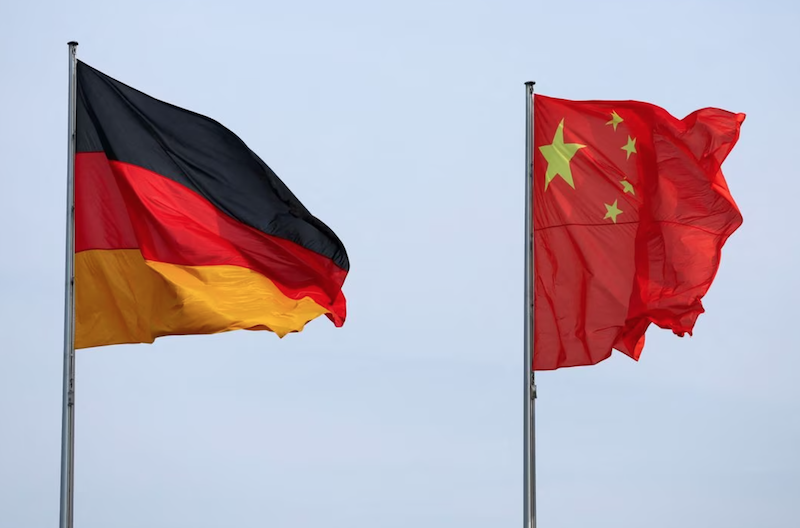Nearly half of German companies operating in China are working to reduce the risks of doing business there, mostly because tensions over Taiwan and the country’s economic slowdown.
That’s according to a new survey by the German Chamber of Commerce in China which found that firms are now building supply chains that are independent of China, shifting some operations away from the country and growing markets elsewhere in Asia.
According to the survey of 566 companies conducted between September 5 and October 6, some 83% of companies cited geopolitical tensions as the main reason for their steps to mitigate risks related to China business, while 45% and 24% respectively put it down to the country’s economic slowdown and greater focus on self-reliance.
Other countries are benefiting from this risk mitigation strategy, according to the survey – with 57.5% of companies surveyed saying they would be investing more in India, followed by 37.9% for Vietnam, 30.1% for Thailand, 23.3% for Malaysia and 20.1% for Singapore.
Also on AF: Raimondo’s Nvidia Chip Warning, Vow of Firmer Curbs Irks China
The survey comes five months after the government unveiled a strategy toward de-risking Germany’s economic relationship with China, its biggest trade partner, and confirms anecdotal evidence of German firms reducing their dependence on China.
Other countries in the West are also promoting greater risk mitigation, amid growing concerns about China’s increasingly assertive attitude toward Taiwan and in the South China seas, as well as its tightening grip over its domestic economy.
This in turn is beginning to have an impact on the world’s second-largest economy, with China recording its first-ever quarterly deficit in foreign direct investment in July-September.
Still, of the German companies surveyed, some 54% said they wanted to invest further in China – up from 51% last year – to localise production, in effect also potentially shielding it from the repercussions of geopolitical spats, according to economists.
That was more than the 44% that said they were pursuing risk mitigation strategies.
- Reuters with additional editing by Sean O’Meara
Read more:
China Manufacturers Rivalling Germany In Home EU Market
Beijing Slams Germany’s China Strategy Paper on De-Risking
China Chip Metal Curbs See Germany Urge Faster ‘De-Risking’
China’s Economic Aggression a Global Threat, says Germany
























